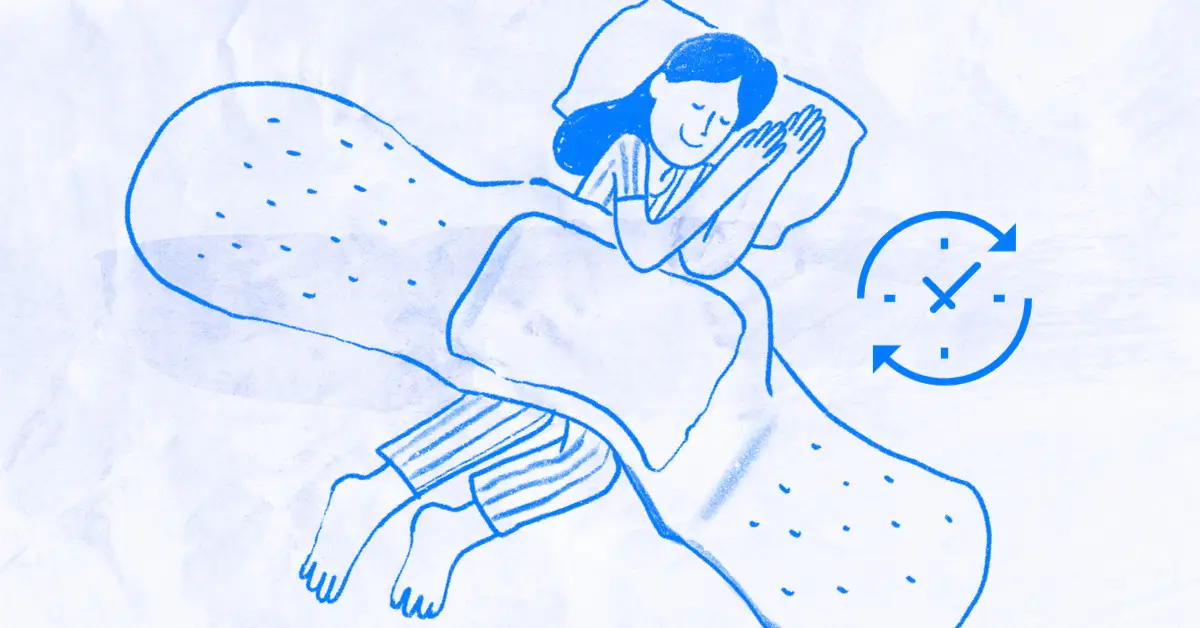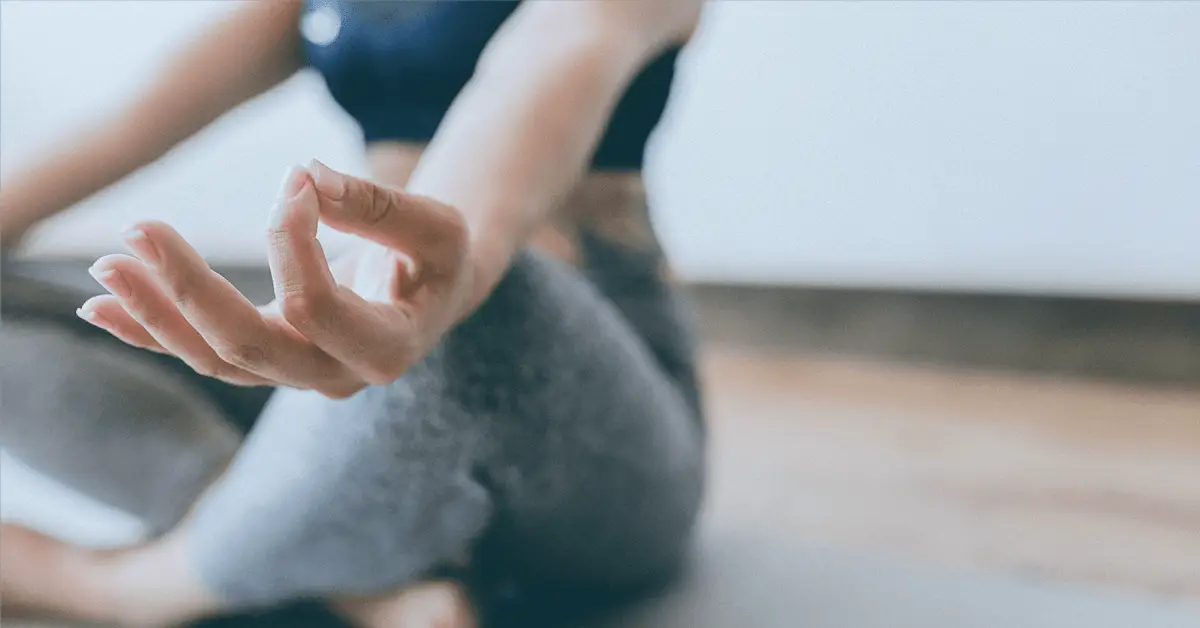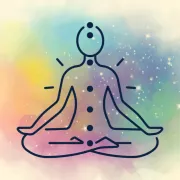Waking up to Better Sleep
In a culture that glorifies putting health (especially sleep) below everything else, lets talk about the importance of sleep.

Each morning is a new beginning. A reset button. Some of us wake up feeling like we have taken a Redbull shot whereas, some wake up feeling more sluggish than when they went to bed.
Sleep is a natural phenomenon, common to all of us. All of us, no matter where we come from, instinctively go to bed at sunset and wake up in the morning as the sun rises. Yet we all experience sleep differently. Let’s dive deeper and understand the nuances of sleep. Here is what we will cover:
What is sleep?
The science behind sleep
Sleep is a biological and psychological phenomenon. A series of chemical reactions and changes occur in our bodies right before we sleep. It is our body’s way of telling us goodnight.
While many of us go to bed in one position, we wake up in another, quite unaware that we are moving in our sleep. Most of us don’t have any memory of the turn of events (quite literally!).
This happens because our mind is never completely still unless we force it to be still during meditation. Even when we are sleeping, our mind goes through different phases of mental activity, repair, and wakefulness. This can be divided into various phases: Non - REM and REM stages of sleep.
The Non-Rapid Eye Movement phase (non-REM)
As the name suggests, in the non-REM stage our eyes are not moving (when they are closed). This phase starts when we close our eyes and proceed to deep sleep. During deep sleep, our body does all its maintenance and repair work. The tossing and turning mostly happen here which is why we cannot recall it.
The Rapid Eye Movement phase (REM)
We enter the REM state right after deep sleep. It is characterized by the rapid movement of our eyelids, and it is the stage right before waking up. Through the night, we oscillate between these two stages of sleep. Each non-REM and REM transition is known as a sleep cycle. And we complete several of these cycles each night.
So, how many hours of sleep should you ideally get?
Without enough sleep, we all become tall two-year-olds.” — JoJo Jensen, Dirt Farmer Wisdom. Here are 14 tips to help you beat the monster under your bed.
lifeism.coThe answer varies depending on your lifestyle. However, according to the National Sleep Foundation, healthy adults require about 7-9 hours of sleep and people over the age of 65 require about 7-8 hours of sleep. Infants on the other hand may require as much as 14 hours of sleep. The truth is that every person is different and so are their sleep requirements. Some people with a low amount of activity can even do with 6 hours of sleep.
Why do we dream?
Dreams have always been a topic of interest. They stem from our imagination. While they may not depict reality, our dreams are a projection of our subconscious. What we watch or read before going to bed influences our subconscious tremendously. It has a huge impact on our lives. Many spiritual teachers recommend turning off mobile devices and listening to something uplifting before going to bed. So we can wake up refreshed and in a great mood.
Fun fact: Before the invention of colored television, people dreamed in black and white!
According to the renowned psychologist, Sigmund Freud, dreams are nothing but our subconscious thoughts during the process of sleeping. We actually dream throughout the night but studies say that we cannot recollect most of them when we wake up. This is because about 80% of our dreams happen during the non-REM stages out of which the majority take place during the deep sleep stages. Only about 20% of the dreams occur during the REM stages. This type of dreaming is also known as lucid dreaming, and these are the type of dreams we remember the most. In fact, a lot of people state that they can even control their lucid dreams.
We all have those unfortunate days when we wake up feeling super groggy and all we want to do at that moment is rest our heads on the pillow, tuck ourselves back into bed, and sleep for “5 more minutes”.
Why do we end up feeling more tired when we wake up than when we went to bed on certain days? A simple explanation for this is that you woke up during the deep sleep phase. When the alarm blares right in the middle of your deep sleep, it takes us longer to become fully awake and come back to reality. This is why it is recommended to set a fixed time of going to bed. This allows your body to set a natural biological clock and wake up every morning at around the same time during the REM phase of sleep. You will not need to hear the noise of the alarm the first thing in the morning, and you will wake up feeling fully fresh. It’s a win-win situation.
There are many apps now available that track your sleep cycle and wake you up when you are not in deep sleep. If waking up tired is a huge issue for you right now, you may consider trying one of them out.
It’s ironic how those who snore end up waking up everyone in the house but themselves!
Snoring is the sound of disrupted breathing while sleeping. It may be due to several underlying health factors such as cold, sinuses, obesity deviated septum, the overall construction of your mouth, or nasal polyps. Other factors that may make you prone to snoring are- weight, the delivery of a child by a woman, or even alcohol consumption.
A condition known as sleep apnea may also trigger snoring. It is a sleeping disorder characterized by erratic breathing patterns while sleeping. Sometimes, a person with this disorder may even stop breathing for several seconds. The breathing in intervals is what may trigger the snoring. Sleep apnea is more common among men and among those categorized as obese. Those with sleep apnea are also highly likely to develop sleep paralysis (a sleeping disorder where you wake up in the middle of your sleep, bursting into sweats and unable to move any of your body parts except your eyes) over a period of time. Please consult a medical professional or seek therapy about any sleep issue that you may be facing.
We all hope that we could take a quick nap and wake up feeling extremely productive and refreshed. But does this technique really work?
As mentioned earlier, we have different phases during our sleep cycle, each of which has a different function. The period of each phase varies from person to person. So, if you wake up during the REM stage of your nap you can feel more refreshed or if you wake up during the deep sleep phase you may end up feeling more sluggish. Research says that naps in phases of 90-100 minutes or even just 10-15 minutes can make people feel more refreshed.
Fun fact: short naps of 30-90 minutes can help to boost memory. Day naps tend to boost long-term memory more than continuous spells of wakefulness. So, if you are a student or a working professional, do not feel guilty for taking that nap! (Unless of course, you have a due date).
Yes, this is true and scientifically proven. A stressful day can account for more erratic sleeping patterns with heavy lucid dreaming. This doesn’t allow the body to recover properly, and you can wake up feeling more stressed and sluggish. You may want to try meditative activities before going to bed to calm your mind.
We all know that meditation is good for us. But if sitting for hours in one position is not for you, then this article offers simple daily meditation methods.
lifeism.coThey call it ‘beauty sleep’ for a reason. What we are on the inside reflects on the outside. Our mental, emotional and physical aspects are deeply linked, and they certainly affect each other. A night of good sleep can make you look better by making you feel good on the inside, too. Here is how a good night’s sleep can help your appearance:
- It rejuvenates your skin.
- It makes you ‘age’ slower.
- Good sleep helps to keep the basic functioning of your body in check.
- Helps you to feel refreshed and more productive.
- Improves cognitive functioning.
- It enables you to perform your day-to-day tasks with ease.
- Keeps emotions under check.
- Helps to keep weight and eating habits under control.
- Helps in the efficient functioning of hormones.
How can I sleep better?
Here are a few tips that might help you sleep like a baby at night!
- Avoid caffeine and alcohol after 2:00PM.
- Try eating at least 4 hours before bedtime. This gives your body sufficient time to digest the food.
- Avoid sugary foods before bed as it interferes with deep sleep.
- Keep a fixed routine and any changes in sleep routine should be implemented gradually.
- Try some meditation.
- Do not work out too close to your bedtime.
- Keep yourself moving during the day.
- Eat healthy food.
- Listen to some deep sleep music.
In a culture that glorifies working at the expense of our health, it is extremely important for us to understand the importance of sleep. We hope this article solved a few basic questions about sleep. We will talk about how to sleep better in our next article in this series.
We look forward to hearing your thoughts about sleep in the comments below.










Comments
This methods are really effective!
As someone who suffers from insomnia now and then, this was a very practical article. Great tips I am going to try out.